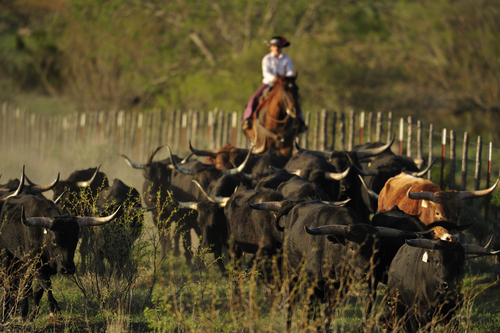Home and Abroad on the Range: U.S. Ranchers and Trade
We at AIER recently wrote an article defending free trade amid a new climate of protectionism. While the arguments for free trade apply to all sectors of the economy, we focused primarily on manufacturing examples. A recent op-ed in the Dallas News used another excellent and perhaps less obvious example – Texas cattle ranchers.
Richard Parker, the author, takes the reader through how imports and exports affect several stages of ranchers’ business. The most obvious is that ranchers, like many agriculture workers in the U.S., sell their products in Mexico, and they hoped that the Trans-Pacific Partnership would open the Japanese market to their beef. The facts support the importance of agriculture exports, particularly beef, to Texas ranchers. According to the Texas Department of Agriculture, in 2012 cash receipts for cattle in Texas were $10.5 billion, nearly half of the state’s agriculture commodity income, and $855 million of that was exported.
I wrote in a recent AIER blog about manufacturing that the distinction between domestic and foreign-made products can be blurry, because many final products assembled in the U.S. contain partially foreign-made parts and vice versa. But Parker reminds us the same logic can hold in agriculture. He writes that, “The short-horned Charolais breed [of cattle], imported from France via Mexico…makes for some of the finest grass-fed beef in the world,” and that “Last week, Texas ranchers shipped 1,430 cattle to Mexico, most to slaughter and to market. On an annual basis that’s 74,000 head, part of a brisk two-way business that sees hundreds of thousands of Mexican cattle coming north to be fattened in Midwestern feed lots.”
Even raising cattle, a job that by definition is closely tied to the land, crosses borders to the benefits of producers and consumers on both sides. A 2011 New York Times article in a similar vein, wrote about the practice of American ranchers in Russia exporting not beef, but breeding bulls to improve Russian ranchers’ herds. Just like a car or a computer, even a steak may be thought of as partially from the U.S. and partly from abroad.










